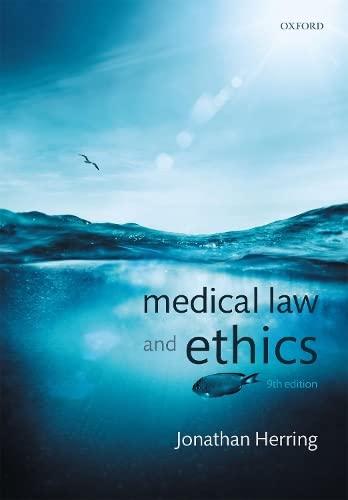Question
Question 1 Is growth hormone deficiency in childhood commonly associated with panhypopituitarism? Question 2 I would like to ask why, when treating hypopituitarism, an adrenal
Question 1
Is growth hormone deficiency in childhood commonly associated with
panhypopituitarism?
Question 2
I would like to ask why, when treating hypopituitarism, an adrenal
crisis occurs if thyroid replacement is given before steroid replacement
therapy? And what is the underlying mechanism? Thank you!
Question 3
Why, in Sheehan's syndrome, is there an anterior pituitary involvement
more than a posterior one?
Question 4
Is the cyclic presence of Montgomery tubercles, where they reduce and
later increase, in a nulliparous woman's breast normal? And, if so, what
is the cause?
Question 5
Does methyltestosterone, if given in a daily dose of 2.5 mg per day, cause
liver cell injury or hypothalamic gonadal suppression? Can this drug be
prescribed for other cases with hypothalamic hypogonadism, usually
being given by intramuscular injection or implant?
Question 6
Does IM testosterone increase levels of serum thyroid-stimulating
hormone (TSH)?
Question 7
For some time now I have been confused regarding tests for acromegaly. 187
Endocrine disease 18
1. Which is best - screening or diagnosing test in these patients?
2. Your book says the 'glucose tolerance test [GTT] is diagnostic'. Does
this mean GTT with growth hormone (GH) evaluation or that a patient
who is clinically an acromegalic with a positive GTT (diabetic) can be
labelled as acromegalic?
Incidentally, a lot of people around me are similarly confused and others
have been following the latter saying that 'Kumar and Clark say so'.
Please clarify.
Question 8
Does acromegaly cause depression?
Question 9
1. Breathlessness can be a feature of acromegaly. What are the
characteristics of this breathlessness?
2. If a patient presents with headaches due to acromegaly, what are the
likely characteristics of these headaches?
Question 10
Why does hypothyroidism cause a transudative pleural effusion?
Question 11
What is the significance of the thyroid-releasing horomone (TRH) test in
differentiating various causes of hypothyroidism?
Question 12
Is retention of urine/incomplete voiding related to hypothyroidism? If
so, how?
Question 13
It is stated that a little overtreatment might be required for
hypothyroidism, i.e. slightly raised thyroxine (T4) and suppressed
thyroid-stimulating hormone (TSH). Is the clinical improvement the best
criteria or is there an optimum/maximum level that one should watch
out for when monitoring TSH and T4?
Question 14
Why is thyroid-stimulating hormone (TSH) normal or increased
in patients with peripheral resistance to tri-iodothyronine (T3) and
thyroxine (T4)? The thyroid hormone levels are high in these patients, so
the TSH should drop lower: why doesn't it?
Step by Step Solution
There are 3 Steps involved in it
Step: 1

Get Instant Access to Expert-Tailored Solutions
See step-by-step solutions with expert insights and AI powered tools for academic success
Step: 2

Step: 3

Ace Your Homework with AI
Get the answers you need in no time with our AI-driven, step-by-step assistance
Get Started


